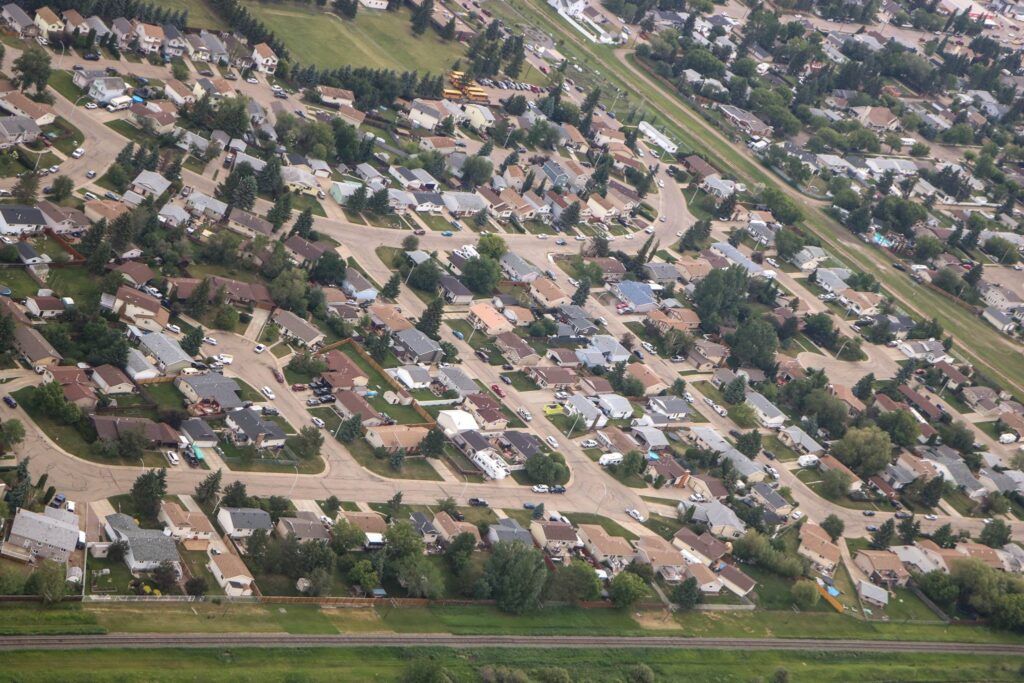by Colin Smith and Morinville Online
Discussion of Morinville’s 2024 budget kicked off at last Tuesday’s town council meeting, and indications are it will be a difficult one.
At the meeting, Financial Services Manager Travis Nosko presented a report emphasizing economic pressures to be taken into account in the creation of the budget.
Some of those pressures are relatively new, including persistent inflation and higher interest rates, while others are more longstanding concerns.
Nosko stated in his report that year-over-year inflation is currently sitting at 5.9%, which is well above historic levels, although it has decreased from last year.
That means that for the 2024 budget, the cost of all goods and services the town requires will again increase substantially.
In its fight against inflation, the Bank of Canada hiked interest rates in 2022 and 2023.
According to the report, that is unlikely to directly affect the town’s expenses because all current debt is locked in at low rates, and no new debt is planned in the near future.
However, it foresees higher interest rates having an impact on the local housing market, putting downward pressure on prices and perhaps discouraging investment in new buildings.
The result is expected to be limited assessment growth, with administration projecting a figure of 0.5%.
Nosko pointed out that with almost no natural growth in tax revenue due to increased assessment, revenue increases will need to come almost entirely from raising taxes.
Ongoing issues include continued tax-supported deficits; low reserve balance and limited recent investment in reserves; an infrastructure investment gap of $4 to $5 million; limited alternatives to residential tax revenue; and the Morinville Leisure Centre.
“The MLC impact continues to be an issue,” Nosko said. “It uses up a considerable amount of resources.”
Uncertainty of funding from the Alberta government is also a concern, but the town recently got some good news, learning that the provincial grant for the year will go up from $1.025 million to $1.7 million.
Nosko said administration is now doing an inventory of services, to determine what exactly each town department provides.
“I think this is the first step in this service levels discussion,” he said, noting that there will have to be trade-offs between service levels and tax rates.”
As stated in his report, “Council must now choose how to deal with the challenging financial situation: raise taxes, cut services, or – the likely answer – a combination of both.”
During discussion, Deputy Mayor Scott Richardson questioned that conclusion after doing a quick calculation that housing starts at the current rate would bring in only about $150,000 in extra revenue per year, a “drop in the bucket” in terms of addressing the infrastructure investment gap.
“What’s the plan?” he said. “Are we going to try and recoup that cost by increasing tax revenue or are there going to be some unique or different solutions rather than just taxes?
“Because it seems to me that since I’ve been on council – five years – everything’s just tax, tax, tax. We’re not really clawing back or getting lower in our budget.”
Richardson stated that having only the “levers” of raising taxes or cutting services to work with in dealing with Morinville’s financial situation puts members of council in a difficult position.
He suggested that finding efficiencies in areas such as fleet management, perhaps by contracting for more services, might be one route to reducing costs. At the same time, that could contribute to a sense of balance on the part of the residents, seeing that the town was cutting back.
“I really hope that this budget is going to give us more levers than just either reduce services, which will upset the residents, or tax them, which will upset the residents,” he said.
Nosko said that council would be presented with options, but, “I don’t think its realistic to say that we can address a $4 to $5 million investment gap without impacting residents either on the service level or the tax level.”
“We have to uncover any rock,” he added. “But it’s going to take a concerted effort on both sides of the table to get us where we need to be.”
Councillor Stephen Dafoe observed that while the MLC is constantly under discussion, the Morinville Community Cultural Centre is rarely mentioned, even though it often sits empty.
“I think we’re going to have a conversation about that,” he said.
As part of his report, Nosko presented council with a timeline of the budget process. The next step is an April 18 presentation on Morinville’s 10-year capital plan, followed by a council budget engagement for council on May 9.
The May 9 meeting will provide an update of relevant issues and enable council to provide initial direction for budget development, informing the first draft prepared by the administration so it better aligns with council expectations.
“I would like council to start thinking about what types of targets, what types of directions, what types of things you want us to put in the draft 2024 budget,” said Nosko.
“I’m hopeful that we can address some of the concerns with timelines and some of the long nights and make sure the process works better, which will hopefully result in a better budget.”
Further work on the 20024 budget by administration will be followed by its presentation to council presentation on September 10, with deliberations leading to planned approval of the budget on November 14.
That leaves an additional six weeks, if necessary, before the required completion of the budget at the end of the year.
Along with that, public engagement on the budget is planned, and will include a survey and in-person information session with council and administration.


More Stories
MCHS Students Showcase Skill and Determination at Skills Alberta Provincial Competition
Morinville student creates powerful poster for Red Dress Day
Deanna Stang Appointed as Deputy Mayor